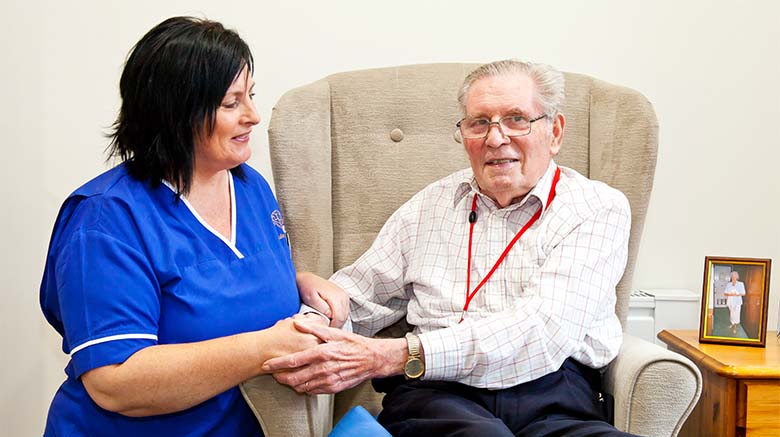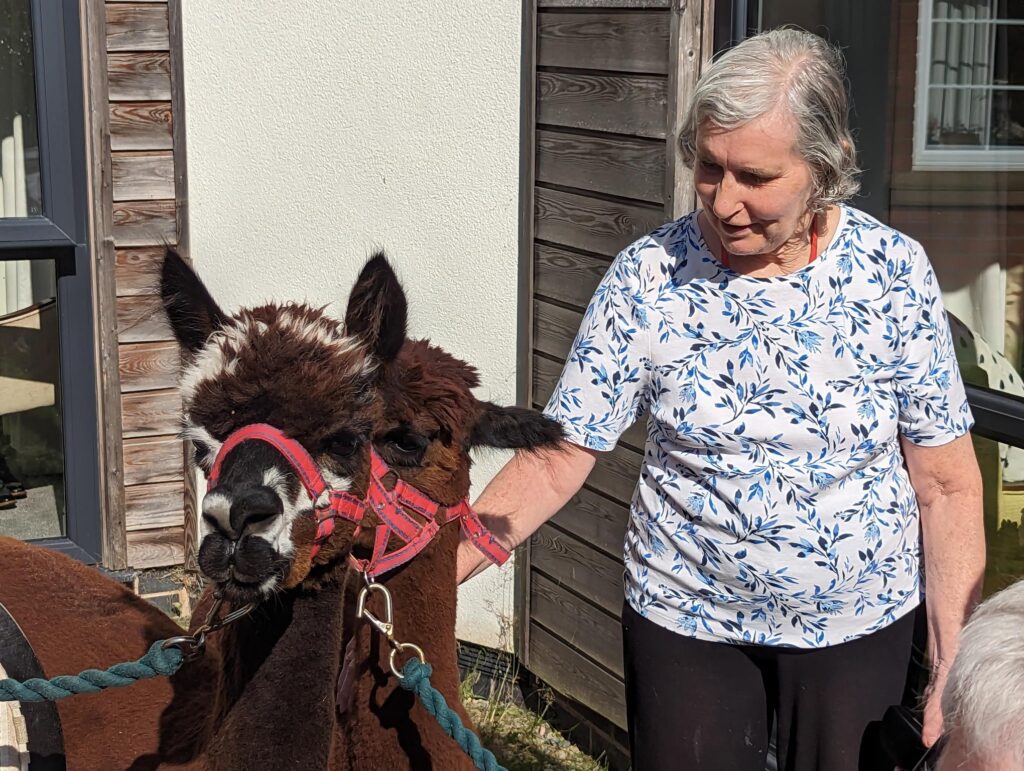What is the Difference Between Nursing Care and Residential Care?

Making the decision to move a loved one into a care home or nursing home is always a difficult decision, especially when there are a lot of aspects to consider. Having the correct knowledge about the care services offered within a care home or nursing home and what you can expect to receive can help you collate a list of what you are looking for, which means you're able to find the best facility to cater for you or your loved one.
The most common care services offered to older adults in both nursing homes and care homes are residential care, dementia care, nursing care and respite care. Each of these plays a crucial role in enhancing the well-being of residents, but it is essential to understand the differences between them. In this blog, we will explore the differences between nursing and residential care to give you a better understanding of which might be most suitable for you or your family members.
What is Nursing Care in a Care Home?
Nursing care is a higher level of care offered to individuals with complex needs, including mental health conditions, severe physical disabilities, a learning disability or those who require wound care. You will receive care on a 1-1 basis from a registered nurse with specialist knowledge on catering for a variety of needs. They will be available 24 hours a day to provide personal care, medical care and companionship to those suffering from a complex medical condition. The average weekly cost for nursing care is usually higher than any other type, because of the unique needs of the residents. Individuals can receive funded nursing care, but we would recommend contacting your local council for any further information on this. Nursing care is offered in both a care home and a nursing home, depending on the individual circumstances.
Key Features of Nursing Care
24/7 Supervision
When residing in a nursing home or care home, you can expect to receive 24/7 supervision. You can receive peace of mind knowing that there is a qualified nurse on site, no matter what time of day it is. They will have specialist training and be able to cater for a variety of nursing needs and support residents with any day-to-day tasks.
Medication Administration
In a nursing home, there will be qualified nurses on site who have undergone extensive training in administering medication so they can ensure all residents can receive everything they need. There will be charts or files for each resident as part of their tailored care plan that outline their frequent medical treatment, meaning they will never miss a course.
Tailored Care
When receiving medical care, residents can expect the nursing home to provide a tailored care plan, which outlines all of their specific needs and interests. This allows the nurses and care assistants to provide flexible care that provides the residents with a comfortable environment and an improved quality of life.
Specialist Medical Equipment
Each care home or nursing home will have specialist medical care equipment in order to ensure residents can move freely around the home and have their needs responded to at any time of the day. This could include profiling beds, nurse call systems, ramps for wheelchairs, adapted bathroom equipment and intravenous medication.



What is Residential Care?
Residential care, on the other hand, is more appropriate for individuals who are able to remain independent for most of the time but require some support throughout everyday living such as assistance with daily tasks or personal hygiene. It is also appropriate for somebody who would prefer to live in shared communal facilities and enjoy socialising with others more often.
Residential care is usually offered within a care home or residential home, and there is a dedicated team of nurses and qualified care assistants who will provide personal care around the clock.
Key Features of Residential Care
Supported Independent Living
In residential care settings, residents can continue to live their lives how they wish whilst receiving companionship from like-minded individuals and the care home team. By receiving residential care, they are also relieved of any external stress that living alone may bring, including preparing meals, bathing, dressing and moving around, which allows them to focus on what makes them happy.
Social and Physical Activity Opportunities
Care home teams understand how important it is to continue to stay active throughout all stages of life, so they will offer a variety of social and physical activity opportunities as part of an all-inclusive activities programme. This not only gives them the chance to continue pursuing their hobbies but also to try out any new interests they may have.
Personal Care
Similar to nursing care, those receiving residential care in Wirral will have a personalised care plan created for them when they move in. This will outline all of their needs, interests and preferences, meaning the team can ensure they receive only the highest quality of care. It also allows them to easily transition to a different care type if their needs evolve, if they are in a care home that offers multiple care types.
Differences Between Nursing and Residential Care
The main difference between a care home and a nursing home is the level of care offered. Whilst 24/7 care is offered for both types, those receiving nursing care have more complex medical conditions or a mental or physical disability and would require both personal and medical care.
Another main difference between residential and nursing care is the type of facility they are offered in. Usually, a nursing home only offers one type of care because of the specific needs of residents and the specialist training that the team will be undertaking. Alternatively, residential care homes are dedicated to residential care because the structure is more relaxed and wouldn't be appropriate for those who require more advanced medical attention.
Due to the higher level of medical care and staffing expertise, nursing home costs are generally more expensive than residential care. Make sure to consider your loved one's needs and budget constraints when deciding on which type of care home to choose. For more information, contact the care home manager or your local authority.



Exceptional Nursing and Residential Care at The Hazelwell Care Home
The Hazelwell Care Home is an exceptional all-inclusive care home located in Wirral. We have a team of registered nurses who are on hand 24/7 to provide residents with first-class nursing and residential care, as well as respite, palliative and dementia care in a comfortable environment they can call home. We also offer a variety of in-house facilities, including outside areas, a rooftop salon, a library and luxury transport.
Our residents are at the heart of everything we do, and we collaborate closely with them and their loved ones to ensure we provide a continuum of care, no matter which type of care they are receiving. It’s essential to us that residents keep pursuing their passions and interests, and that they make the most of each day by doing what they enjoy. Visitors are welcome at any time, and we have an open-door policy for family and loved ones.
Get in Contact With Our Dedicated Team of Registered Nurses
For any further information regarding our care services or any of our in-house facilities and amenities, please get in contact with our residential and nursing home team by emailing info@thehazelwell.com or calling 01513 429554. We look forward to hearing from you.






